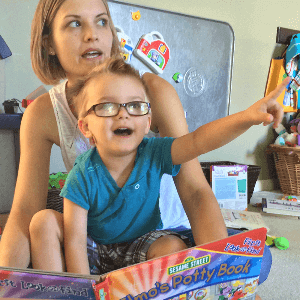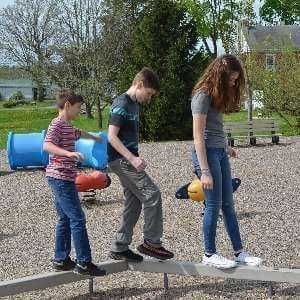When toddlers are inattentive, hyper focused on certain topics or items, or extremely hyperactive, both professionals and parents wonder if it’s normal, if it’s just a phase, or if it’s ADHD or autism. Today, I want to discuss ADHD vs. autism symptoms in very young children and the treatment for both.
Each week, I provide you with some of my ideas about turning autism around. So, if you haven’t subscribed to my YouTube channel, you can do that now.
Back in the late 1990s, when my son Lucas was two, he was very impulsive, inattentive, and darted away when we were out in the community or out in the yard. He also was diagnosed with a speech delay and saw a speech therapist weekly and attended toddler preschool two mornings a week without too many issues. At that point, I was hoping that Lucas’s issues were related to just the speech delay or at the worst, just ADHD. I thought autism was a death sentence with no hope for improvement.
After two decades in the autism world, I know that serious improvement from autism is possible and I’ve also been a part of preventing autism too but acting at the very first signs of any delay when your child or client is very young is key. As you may know, Lucas was diagnosed with moderate to severe autism one day before he was 3, after I was in denial for over a year.
Over the past 20 years, I’ve learned that there is a huge overlap between early signs of autism, ADHD, speech delays, and mental health issues like OCD and ODD. And many professionals, including me, believe that ADHD may be on the edge of the autism spectrum. In fact, the early signs and symptoms of both autism and ADHD as well as developmental delays overlap a lot.
ADHD & Autism Symptoms
Typically developing kids have lots of tantrums too, and many toddlers and preschoolers who have language or other delays early on, do catch up either on their own or with just a little early intervention. Even really bright kids with high IQs without delays often have sensory and social differences. So it is no wonder that everyone is confused. Some signs of autism and ADHD in toddlers are nearly identical, including inattention, hyperactivity, being constantly in motion, impulsivity, and refusing to wait, share, or take turns.
Attend a FREE Workshop!
But these behaviors are also present in most typically developing 2 and 3-year olds in general, as these young kids are learning abstract language and transitioning to cooperative play. The addition of a speech delay, failure to point by 18 months to show you things, and failure to play at age appropriate levels is more indicative of autism. But a lot of times it’s very difficult to tell. There’s also a lot of false reassurance going on in the medical and educational fields with people saying he’s just a boy, my son didn’t talk until he was four, and don’t worry he’ll catch up.
Next Steps for Kids Showing Signs
No matter if you think your toddler is hyperactive, inattentive, having more tantrums than you’d expect, or just seems a little behind in terms of talking, here are the same three steps you should take today.
- Know what typical milestones are and the ages when your infant, toddler, or preschooler should be babbling, reaching for things, crawling, pointing, putting two words together, and sitting for a book to be read. The CDC’s Act Early website is a helpful resource and that goes over typical milestones and early warning signs of delays for kids from 2 months to 5 years of age.
- After checking the milestones your child seems delayed in any area, make an appointment with your child’s pediatrician and get on wait list for further evaluations.
- Learn about ABA, Applied Behavior Analysis, which is a behavioral treatment because even if it’s just ADHD or a speech delay only, learning these proven strategies will help your child get back on track or improve to some degree.
Wherever you’re watching this, I would love it if you would leave me a comment, give me a thumbs up and share this video with others who might benefit. You can also sign up for a free online workshop focusing specifically on how to help toddlers with delays, that will help you increase language and decrease problem behaviors in your child or client with autism. I’ll see you right here next week.
Attend a FREE Workshop!






